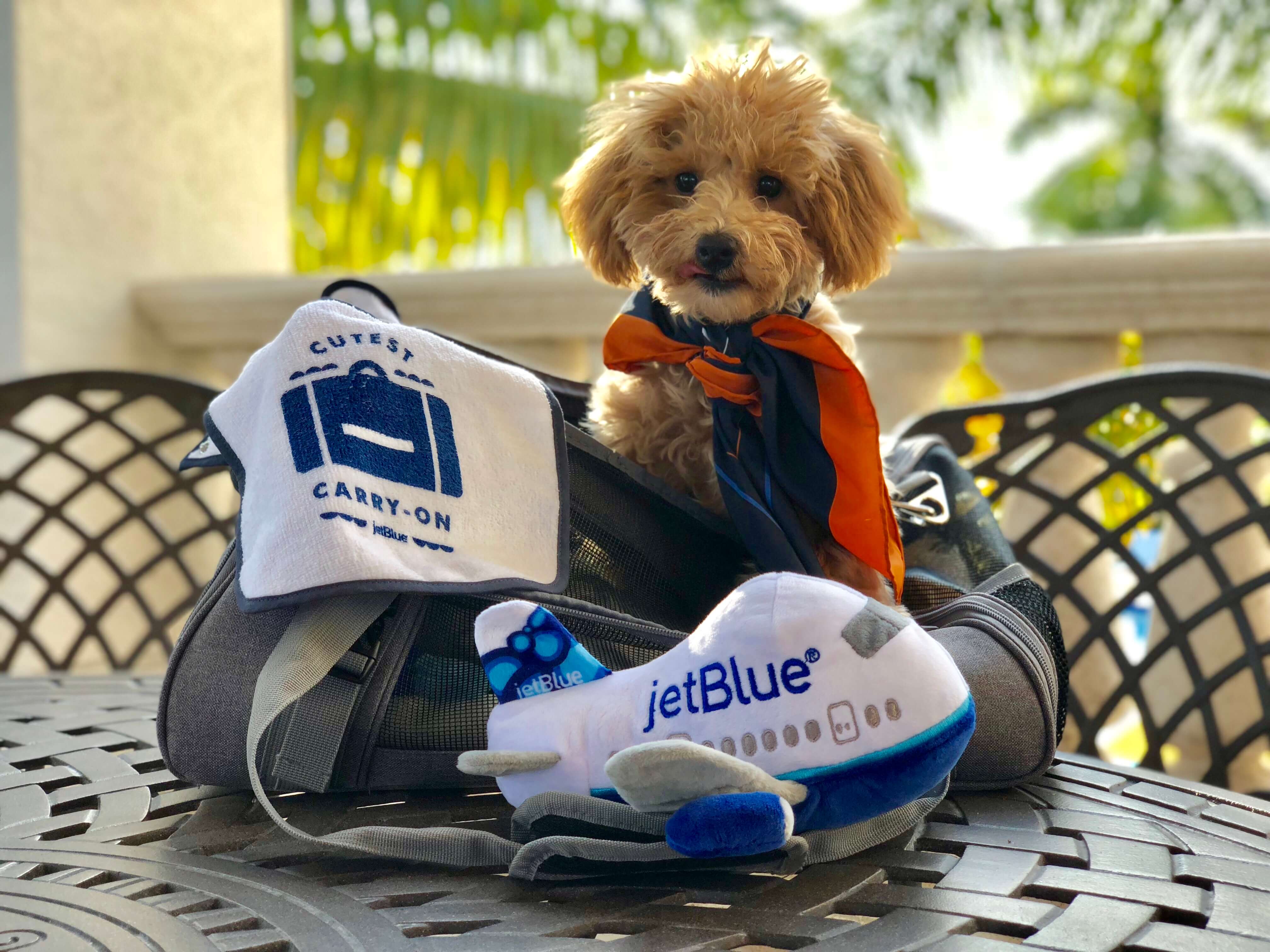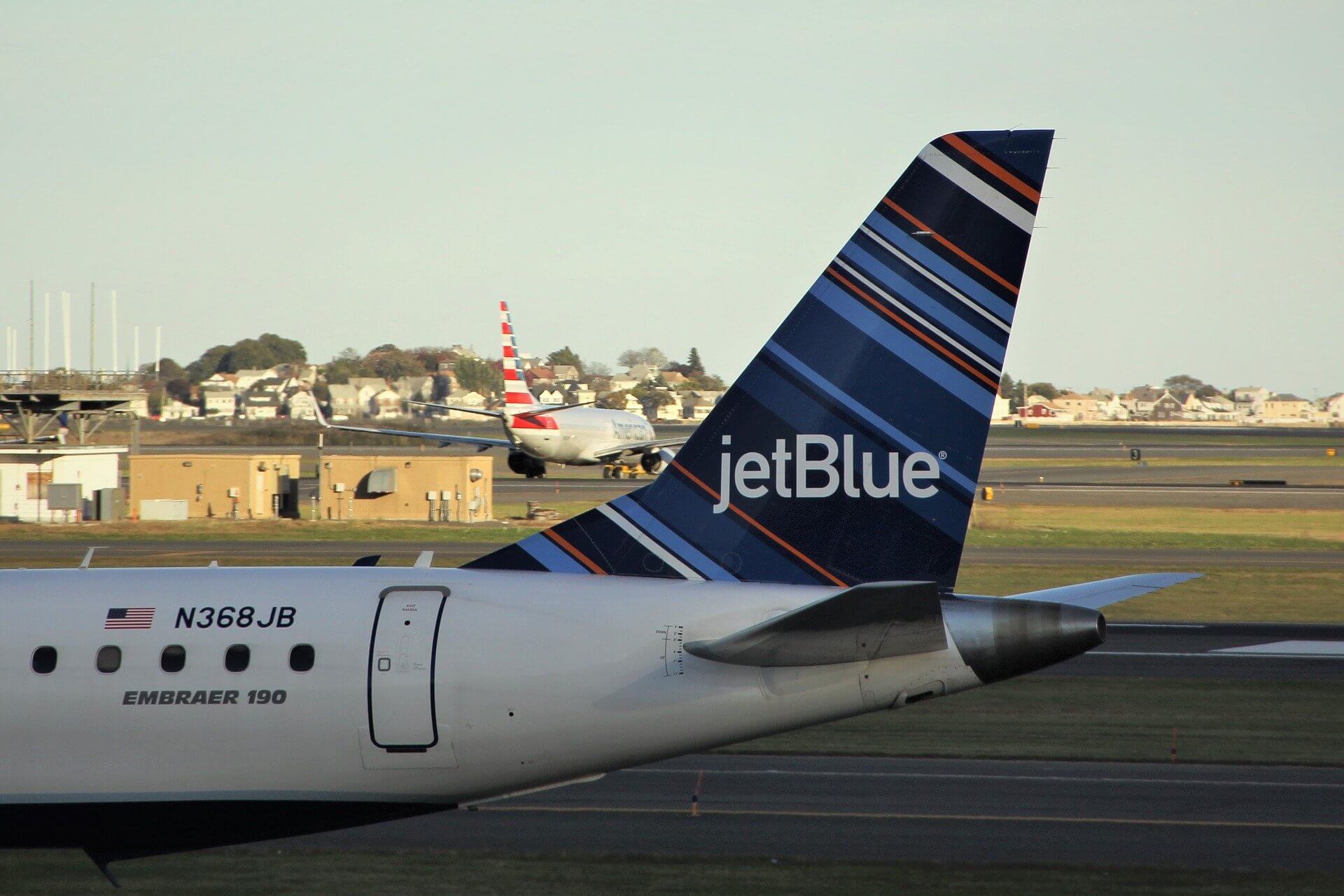2019-01-12

JetBlue is one of the top pet-friendly airlines that welcomes travelers with their emotional support animals, service animals and domestic pets in the cabin. However, the airline has established guidelines for travel with different animals and is constantly updating them. You should follow these instructions if you intend to travel with JetBlue with your four-legged friend shortly. In this post, we will present the JetBlue Emotional Support Animal policy and follow the trend to tighten the latest modification.
In this article
1. JetBlue policy for emotional support animals
1.3. Emotional support animal restrictions
1.4. Preparation tips for the flight
JetBlue policy for emotional support animals
JetBlue announced their ESA policy on their official website, stating that they permit health, clean and well-behaved emotional support animals on board at no additional charge.
Please note ahead that JetBlue now accepts only dogs, cats, and miniature horses as emotional support or psychiatric service animals and limits such permitted animals to one (1) per customer.
The airline clearly defines Emotional Support Animals as animals that provide comfort to passengers and alleviate their anxiety, PTSD or other diagnosed mental disorders. Note that JetBlue renewed its ESA policy on July 1, 2018 and became more restrictive regarding ESA requirements (see below). Additionally, each passenger may take only one accepted emotional support animal. All ESA travelers need to submit certain documents no later than 48 hours before departure. To have a stress-free trip, you should familiarize yourself with the following things.
1. Advanced notice
JetBlue requires ESA passengers to submit a Special Service Request (SSR) through their website or via an APP or to notify them about your animal at 1-800-JETBLUE (538-2583) as soon as you booking the trip. Here are the reasons:
• Each airplane restricts the number of animals allowed in the cabin. Early notification will help you make a reservation for your ESA.
• Once the staff have received your request, they check the information from your ESA to confirm whether the animal complies with their ESA policy.
• Later, the staff will contact you for more information such as seat suggestions and ESA cabin documents.
• Crew members know how to assist you and your animal during the flight if they receive an advance notice.
2. Documentation
This is a crucial step that will determine whether you can successfully travel with JetBlue with your emotional support animal.
Prior to updating the ESA policy, JetBlue had not requested passengers to submit documentation ahead of traveling.
In the new policy, JetBlue requires you to submit a signed document for both you and the animal no later than 48 hours prior to departure. The required documents include:
• Medical/Mental Health Professional Form: Paperwork that states your medical condition and the needs of an emotional companion.
• Veterinary Health Form: includes the animal’s health certificate and vaccination record from a USDA approved veterinarian that must be completed within 10 days prior to departure.
• Customer Confirmation of Animal Behavior: JetBlue does not demand special training for emotional support animals, as it does for service dogs, but demands that animals in the cabin stay calm and behave well and not unruly to ensure the safety of other passengers. You will need to prepare a confirmation of your animal’s behavior, signed by your veterinarian or animal trainer.
All the forms can be downloaded here at Jetblue website.
If you want to take an international trip with your ESA, you may need to bring additional papers that vary by destination. Please check this carefully before booking a trip. (See below)
Note that the Emotional Support Animal Identification Card with the information of both you and your pet is not mandatory but useful documentation that confirms your relationship and helps you to quickly go through the airport security.
3. Emotional support animal restrictions
The JetBlue ESA policy has quite strict limitations on ESAs. There are a few rules that ESA travelers must follow:
1) Animal restrictions
As of July 1, 2018, JetBlue only allows dogs, cats and miniature horses as emotional support animals onboard. They reject the animals that could pose unavoidable threats or dangers to the public, as follows:
• Hedgehogs
• Ferrets
• Insects
• Rodents
• Snakes
• Spiders
• Sugar gliders
• Reptiles
• Animals with tusks
2) Breed restrictions
All cat, dog and mini-horse breeds are permitted to enter the cabin as long as they are well behaved.
Unlike other airlines, JetBlue does not prohibit flat-faced dogs and cats (Pugs, British Shorthair, etc.) from flying (in the cabin). However, we still recommend that you think twice about the health problems associated with breathing difficulties due to their short nose.
3) Animal physical and behavioral restrictions
As mentioned above, emotional support partners should behave appropriately during the trip. Animals with the following issues are not considered a qualified ESA, based on the new ESA policy.
• Animals with odor or unclean body
• Animals with a poor health condition
• Animals that behave unruly or aggressively, such as barking, growling, scratching and other disturbing behaviors.
4) Number of animals
A passenger can only take ONE emotional support animal into the cabin.
5) Large animals
JetBlue does not permit animals to travel in the cargo hold. Therefore, if your ESA is too large to stay in front of your seat, you probably need to book another seat for your emotional companion or choose other airlines that allow cargo travel.

4. Preparation tips for the flight
There are some requirements you need to know before traveling or while onboard.
• Seat: Emotional support animals cannot occupy a seat unless you have booked a seat for your furry friend in advance. Otherwise, the animals must stay on the floor or sit on your lap. Also, animals cannot roam freely throughout the cabin, sit in emergency exit rows or occupy foot space of adjacent seats.
• Carrier: JetBlue does not require your ESA to travel in a carrier. Whether or not you use a carrier depends on your needs. For example, the soft carrier is a safeguard for a tense kitten. However, all carriers must comply with the guidelines of the airline. and the side of a carrier may not be larger than 17″ (43.18 cm) by 12.5″ (31.75 cm) by 8.5″ (21.59 cm). Carriers can be soft or hard, but must be able to fit under the seat in front. To ensure the safety of your pet, we recommend you choose a well-ventilated and seal-proof carrier. Also, you could purchase a soft carrier from JetBlue that is specifically designed to fit under the aircraft seats. Tagging an ESA ID card to the carrier is a smart way for crew members to contact you if your pet is lost.
• Relief area: There is no pet “toilet” once you and your ESA are on board. You must solve this issue before boarding. Unfortunately, not all airports have special relief areas for pets. It is better to consult the airport staff about the locations of the relief areas pre-/post security. Otherwise, your pet has to relieve the urine before entering the airport.
5. International travel
As the ESA policies vary from place to place, you usually need to provide additional documents. For example, Puerto Rico and the US Virgin Islands require that you provide a specific vaccination record. Click on this link to find out the vaccination requirements for other international destinations.
It is recommended to first review all the required documentation with a location-specific tool on the USDA website.
JetBlue Pet Travel Policy
If your pet is not an ESA or not one of the most common types of ESA animals (dogs, cats and miniature horses), it will be considered a domestic pet and have to comply with JetBlue pet travel policy.
• Extra fees: The airline charges a pet fee of $125 each way for travel in the cabin. Pets are not accepted as checked baggage.
• Weight limitation: Unlike the ESA policy, the total weight of the pet and the carrier must be less than 20 pounds.
• Seat: Animals cannot occupy a seat even though you have paid the pet fee.
• Restricted destinations: Pets are not allowed on flights to Jamaica, Barbados, St Lucia, the Cayman Islands or Trinidad & Tobago.